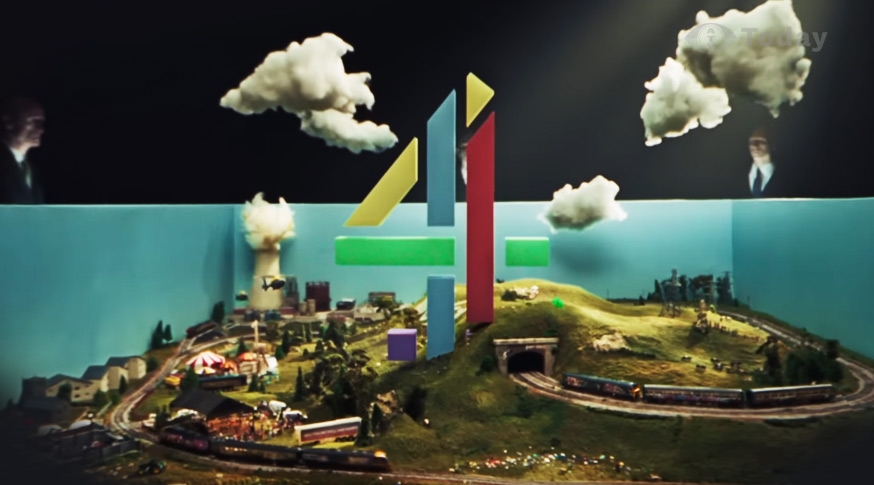
TV Highlights
Channel 4’s Dispatches looks at ‘Coca Cola’s Dirty Secret’
Dispatches has calculated that in the UK, Coca-Cola bottling partners sell two billion plastic bottles and two billion cans a year – equating to 65,000 tonnes of single-use plastic…
In Coca Cola’s Dirty Secret, Dispatches, which aired earlier this evening, the programme has calculated that in the UK, Coca-Cola bottling partners sell two billion plastic bottles every year. The empty packaging has led to Coke being named, last month, as the largest contributor to plastic branded waste globally.
Dispatches revealed new UK figures for plastic waste. Lizzie Carr MBE, founder of Planet Patrol – a litter-picking app that collects vital data on single-use plastic, reveals that Coca-Cola is the brand most commonly found discarded in 2023, for the fifth consecutive year: “Since 2019, when we started recording data…the most polluting brand has been Coca-Cola every year.”
This discovery was reinforced by a global team of researchers who counted over 1.8 million pieces of litter, concluding that Coca-Cola was THE largest contributor to plastic waste. Coke’s litter alone accounted for eleven percent of all the branded plastic litter worldwide – twice as much as their rival Pepsi.
Whilst Coca-Cola’s transition from glass to plastic bottles in the 1970s revolutionised drinks packaging, and benefitted Coke’s profit margin, it created a devastating waste problem. Lord Hayward – a former executive, who worked at one of Coca-Cola’s main bottling plants when the first plastic bottle was introduced, told Dispatches: “At the time, we thought it was a great idea. Now, I’m disappointed that we didn’t identify many of the problems earlier.”
In 2017, Coca-Cola pledged to recover and recycle every single can and bottle that they sell by 2030. However, Councillor Darren Rodwell from The Local Government Association, responsible for picking up waste around the UK, says Coke is not involved in collecting or recovering the waste it creates, revealing to Dispatches:
“I’ve never been approached by Coca-Cola or any other company to do with helping us clean up the rubbish that they’re profiting from. …packaging has been a real issue, especially plastic packaging.”
Concerned about the cost implications of this waste, he said: “For every penny we are spending on waste, actually, we’re not spending it on supporting people. That’s a real cost to us as a society.”
Coca-Cola claims on their website that “a Coke bottle you recycle could be back on shelves as a new bottle in as little as six weeks,” without mentioning degradation, or that this can only be done a finite number of times.
Prof Michael Shaver, Director of the Sustainable Materials Innovation Hub at Manchester University says, “In any system there is always degradation. The imagined future where we can break the laws of physics and somehow get one bottle turning into another bottle, that doesn’t exist.”
Coca Cola claims its 100% recyclable Coke bottles can be turned into new Coke bottles “again and again and again.”
The Competition and Markets Authority (CMA) has become increasingly concerned about claims brands make about recyclability. Cecilia Parker Aranha, Director of Consumer Protection at the CMA says, “Plastic degrades and [is] not infinitely recyclable. So if you are pretending to consumers that the plastic bottle they are using can be recycled forever, then that probably would amount to a misleading claim and something we would be worried about.”
She continues, “We’re worried that the information that’s being provided to consumers is misleading them and is painting a picture that some of these products are more environmentally friendly than they actually are.”
Coca-Cola says that they “fully comply with the UK’s world-leading approach to ensuring that consumer communications are not misleading.” They claim that they are “working with national and local governments…to invest in the ongoing development of a successful and effective recycling industry,” in order “to reduce the amount of plastic” they use, adding that: “More than a decade ago we invested to help build the UK’s first bottle-to-bottle reprocessing plant.”
The 500ml bottle: In 2021 Coca-Cola made a breakthrough pledge claiming their best-selling 500ml bottles are all “made with 100% recycled plastic.” Dispatches reveals that the 500ml bottle is the most lucrative for Coca-Cola. It is the brand’s bestselling line, generating significant profits. In some cases, consumers pay more for a 500ml bottle than for the two-litre size.
Dispatches shows how Coca-Cola know that consumers are willing to pay more for sustainable products and asked Coca-Cola whether the 100% pledge is a marketing strategy to direct consumers to their more lucrative product size.
Coca-Cola responded: “We are in the process of rolling out 100% rPET across our whole portfolio in Great Britain. 500ml bottles represent the largest share, so transitioning these products first was the most impactful place to start.”
Producing Coca Cola requires an estimated 25 billion m³ a year – the equivalent to the amount of water abstracted annually in a country like France or Italy. The main ingredient in Coca-Cola – water – brings its own set of issues. One-third of Coca‑Cola’s bottling plants operate in water-stressed areas. Coke boasts of their sustainable approach to water, claiming, “We have replenished more than 100% of the water used in our finished beverages every year since 2015.” However, their pledge does not stretch to replenishing water beyond the amount required to produce the drinks bottles.
Dr. Nick Hepworth, from Water Witness, who advocates for sustainable water management and social justice, is concerned about the amount of water used to produce the amount of Coke currently distributes globally: “To produce a bottle of Coke like that, based on Coke’s analysis, takes 35l of water, so that would include the water required to irrigate sugar to produce the packaging and the plastic bottle, and of course, to put the Coke in the bottle and to clean up in the factory.”
He added: “Replenishment is a flawed idea. Water use happens in a time and a place, and it would require Coke to immediately replace the same volume of water, the same quality at the same place for them to, to truly replenish.”
In response, Coca-Cola said: “The water usage figure quoted is not correct. It is extrapolated from limited data from one product SKU [product line], in one European country, from over 15 years ago. It is not an accurate reflection of our freshwater use….It is very difficult to accurately measure total water footprint covering all operations and supply chains globally.”
Dispatches also revealed how residents living close to the Coca-Cola bottling plant in Blantyre, Malawi suffer significant water shortages, while the plant, which produces 20,000 cases of Coca-Cola a day, is continuously operational.
An employee of the Blantyre Water Board, who service the Coke bottling plant and its neighbouring communities, confirmed that because Coke “take a lot of water, it affects the supply of water to the area around the bottling plant. It is difficult for those who live nearby to receive sufficient water supply.”
Coca-Cola says providing water to women and girls is their priority in the region but Dispatches reveals how locals are forced to store up and ration water, as they are frequently left without a running supply. If they run out, they must walk to the local borehole and draw water there. A recent study showed three-quarters of urban boreholes in Malawi produced water unfit for human consumption, putting residents at risk of diseases like cholera.
Coca Cola has said: “We have a responsibility to help protect local water resources. We recognise that water use within our agriculture supply chain accounts for the vast majority of the surface water and groundwater consumed in the production of our beverages.”
Coca Cola’s Dirty Secret: Dispatches is a Firecrest Films production for Channel 4. Catch up with the episode via Channel 4 streaming.










